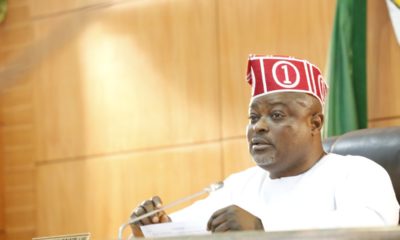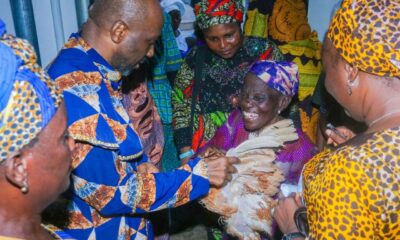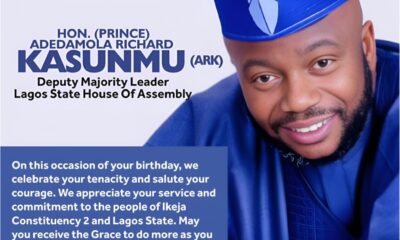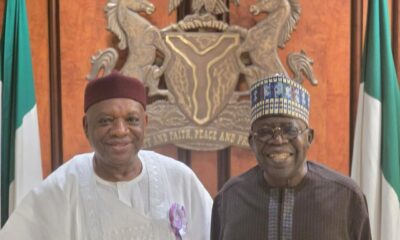Opinion
Senator Orji Kalu: Championing Economic Development in Abia State By Dr Dominic Joshua
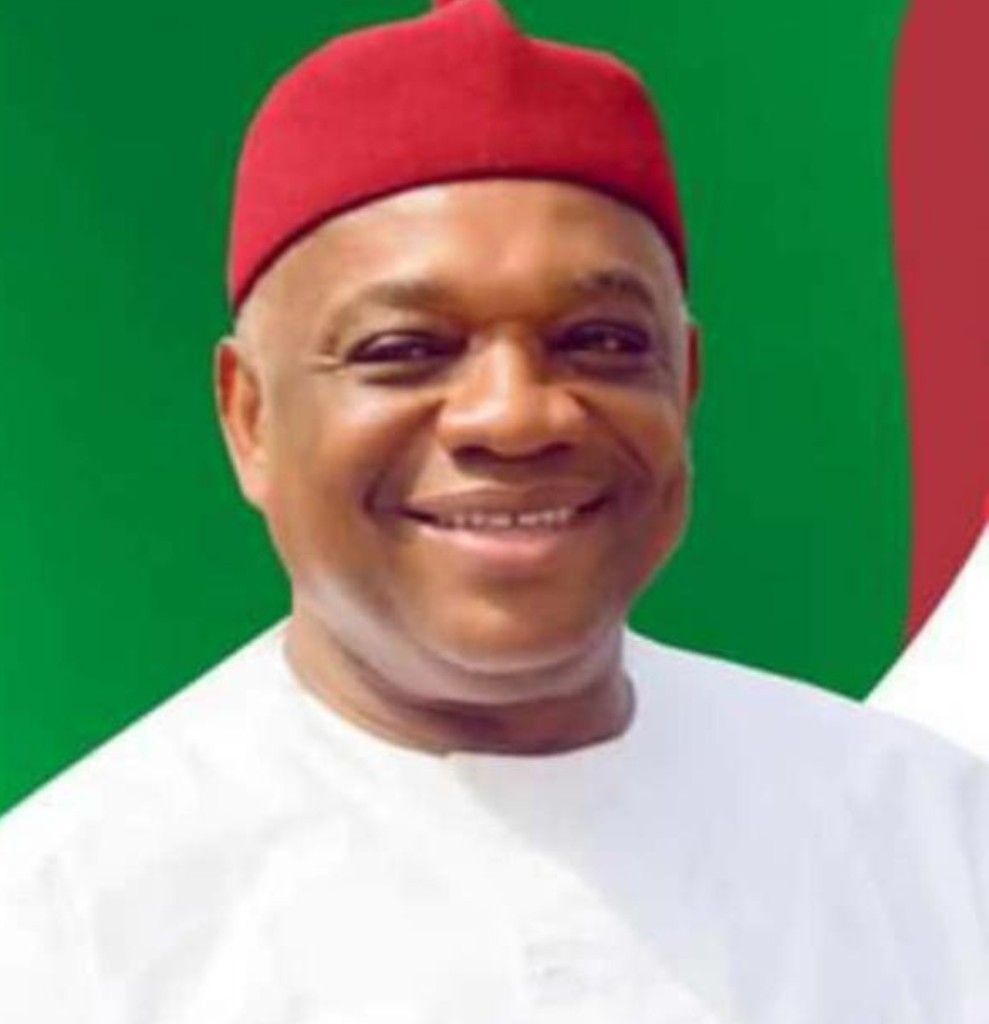
Senator Orji Uzor Kalu, a figure synonymous with political resilience and visionary leadership, has long been a driving force behind the economic resurgence of Abia State. As a former governor and now a senator, Kalu’s contributions to economic growth, job creation, and infrastructural development have left an indelible mark on the state. His efforts not only revitalized Abia’s economy but also positioned it as a beacon of hope for sustainable development in Nigeria’s Southeast region.
Revitalizing Abia’s Economy: A Visionary Approach
When Senator Orji Kalu assumed office as the governor of Abia State in 1999, the state’s economy was in dire straits. The industrial backbone, once vibrant, had deteriorated, and unemployment was rampant. Understanding the critical need for economic rejuvenation, Kalu implemented a multi-faceted approach that targeted key sectors such as agriculture, industry, and trade.
One of Kalu’s flagship initiatives was the revitalization of the Enyimba Economic City project, a public-private partnership aimed at transforming Abia into a global business hub. The project, which covers over 9,464 hectares of land, is designed to house industrial parks, business districts, and residential areas. With an estimated potential to create over 625,000 jobs and generate $5 billion in annual revenue, the Enyimba Economic City stands as a testament to Kalu’s commitment to sustainable economic development.
Infrastructural Development: Laying the Foundation for Growth
Kalu’s administration was marked by an aggressive push for infrastructural development, recognizing it as the bedrock of economic progress. His government invested heavily in road construction and rehabilitation, connecting rural areas to urban centers and facilitating the movement of goods and people across the state. The Umuahia-Ohafia Road, a critical artery in Abia’s transport network, was one of the numerous road projects completed under his tenure. This road not only improved accessibility but also stimulated economic activities in previously isolated communities.
In addition to road infrastructure, Kalu’s administration prioritized the development of healthcare and educational facilities. He spearheaded the construction of modern hospitals and schools across the state, ensuring that the workforce was healthy and educated—key ingredients for economic productivity. The Abia State University Teaching Hospital, which he upgraded, became a center of medical excellence in the region, attracting healthcare professionals and boosting the local economy.
Job Creation: Empowering the People
Job creation was a cornerstone of Kalu’s economic agenda. Understanding that employment is a critical driver of economic stability and social harmony, he launched several initiatives aimed at reducing unemployment, particularly among the youth. The Youth Empowerment Scheme (YES), introduced during his tenure, provided vocational training and entrepreneurship support to thousands of young people, equipping them with the skills needed to start their own businesses or secure gainful employment.
Kalu also focused on reviving the state’s moribund industries, particularly in Aba, the commercial nerve center of Abia State. By providing financial incentives and creating an enabling environment for businesses to thrive, he attracted both local and foreign investors to the state. The revitalization of the Aba textile industry, for instance, not only revived a once-dominant sector but also created thousands of jobs, boosting the state’s economy and reducing poverty.
Impact on Local Economy: A Lasting Legacy
The impact of Senator Orji Kalu’s economic policies is evident in the steady growth of Abia’s Gross Domestic Product (GDP) during and after his tenure as governor. Between 1999 and 2007, Abia State’s GDP grew at an average annual rate of 7%, a remarkable feat considering the economic challenges Nigeria faced during that period. The state’s internally generated revenue (IGR) also witnessed significant growth, increasing from N500 million in 1999 to over N6 billion by 2007. This growth was largely attributed to the expansion of the tax base, improved revenue collection mechanisms, and the flourishing of small and medium-sized enterprises (SMEs) under Kalu’s leadership.
Kalu’s legacy in Abia is also reflected in the state’s reduced unemployment rate, which dropped from over 30% in 1999 to about 15% by the time he left office. The success of his job creation programs and the revival of key industries played a pivotal role in this reduction, providing a model for other states in Nigeria to follow.
A Vision for the Future
As a senator, Orji Kalu has continued his advocacy for economic development, not only for Abia State but for the entire Southeast region. His legislative efforts have focused on attracting federal projects to the region, promoting regional integration, and ensuring that the Southeast receives its fair share of national resources. Kalu’s vision for the future of Abia remains clear: a state where economic opportunities are abundant, infrastructure is world-class, and the people are empowered to build prosperous lives.
In conclusion, Senator Orji Kalu’s contributions to economic development in Abia State are both profound and far-reaching. Through visionary leadership, strategic investments in infrastructure, and a relentless focus on job creation, he has laid a strong foundation for the state’s economic growth. His legacy is one of hope, resilience, and progress, inspiring a new generation of leaders committed to the sustainable development of Abia State and beyond.



